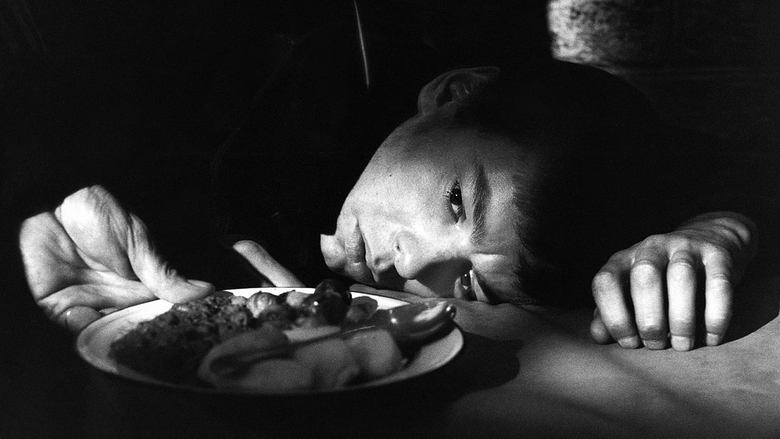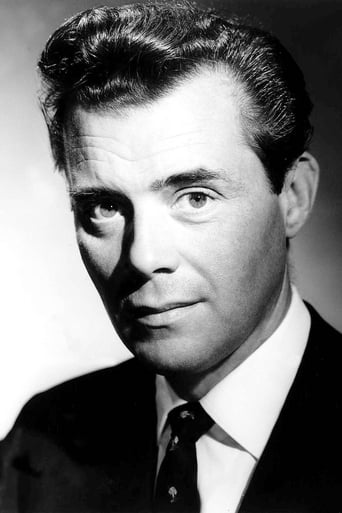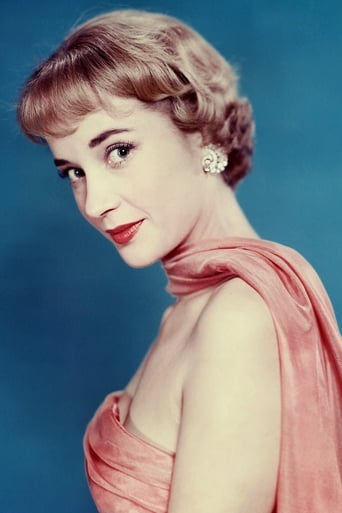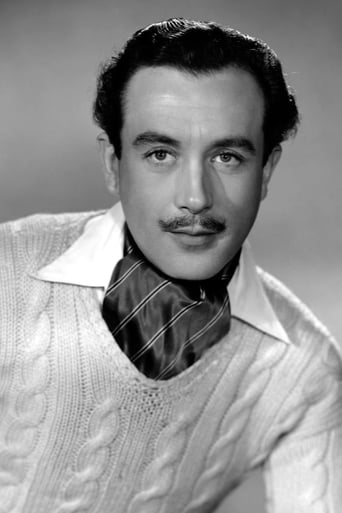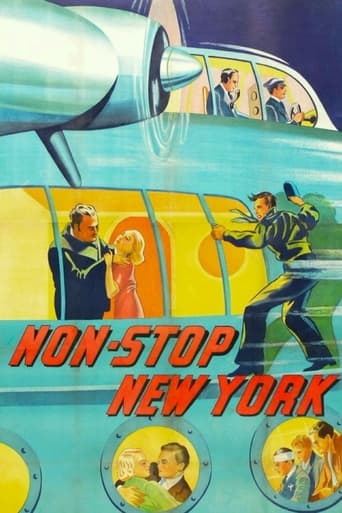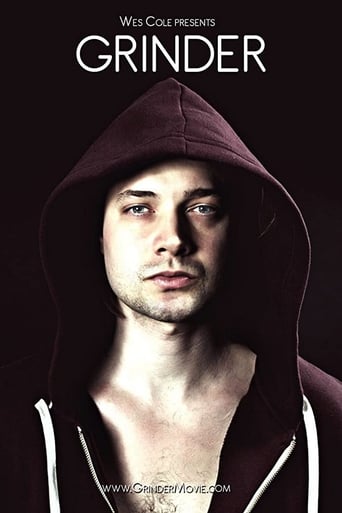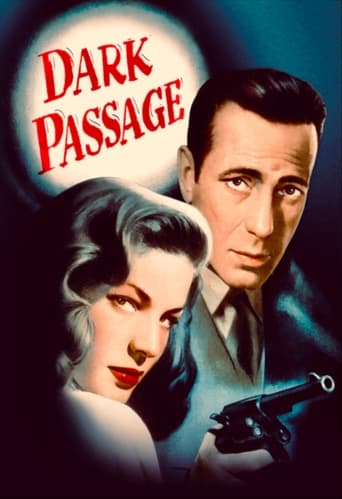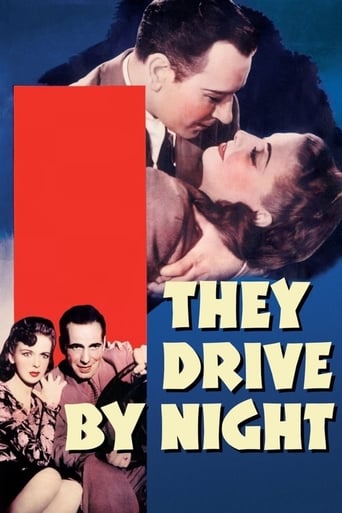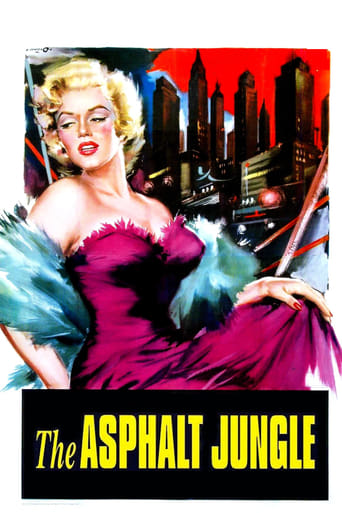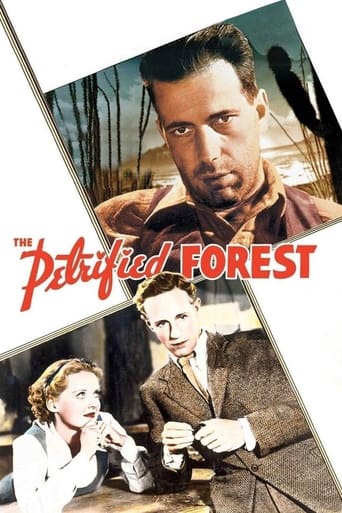Victim (1961)
Barrister Melville Farr is on the path to success. With his practice winning cases and a loving marriage to his wife, Farr's career and personal life are nearly idyllic. However, when blackmailers link the secretly closeted Farr to a young gay man, everything Farr has worked for is threatened. But instead of giving in, Farr decides to fight.
Watch Trailer
Cast
Similar titles
Reviews
Excellent but underrated film
Funny, strange, confrontational and subversive, this is one of the most interesting experiences you'll have at the cinema this year.
After playing with our expectations, this turns out to be a very different sort of film.
It's the kind of movie you'll want to see a second time with someone who hasn't seen it yet, to remember what it was like to watch it for the first time.
Looking at this film from today's perspective it looks very tame, the story is a group of gay men from different social economic groups being blackmailed, but this film was made in 1961 6 years before the 1967 Sexual Offences Act which decriminalised sex acts between men over the age of 21 in private, the film was made during the period which became known as the British new wave when British films wanted to become more realistic and challenge the accepted view of society and the establishment but this was still a brave move at the time, the film treats the men sympathetically (who at the time would've been regarded as perverts and criminals) and argues (as much as it dares) for the law to be changed, Dirk Bogarde plays a successful barrister who decides to take on the blackmailers and let the chips fall where they may, knowing that that decision will destroy pretty much every aspect of his life, the film is well acted and very well made, i think because of its time and subject matter the film will always be very interesting as a period piece more so as time goes by, to think that less than 50 years ago there were laws like this and people were persecuted and prosecuted for their preferences is a disgrace and i think that's what most of todays audiences will think.
Just watched the film last night, and then started doing some background research this morning. I was absolutely floored to discover that homosexuals were going to prison in England up to the time a homophobic criminal statute was repealed in 1967.I was especially floored because so many prominent English actors were gay, going back to my knowledge to the 1930s. Noel Coward's name often appears in film biographies as "encouraging" this or that young, handsome actor, back in those good old days. Coward, if anything, flaunted his homosexuality. He was never arrested. Nor was John Giulgud. The U.K. police evidently left famous personalities quite alone, while selectively prosecuting other people, as portrayed in this movie.Mind you, the social safety net of a gay man marrying a woman was commonplace. Many actors, but not all, resorted to this strategy, although to his credit, not Dirk Bogarde.In this particular film, the character of Farr's wife is pivotal. It seems the woman in the life of a gay man receives very little sympathy, so again this film is a milestone in portraying the anguish of the spouse. Many women are, by nature,loving and nurturing and supportive. This is another reason why some of these inappropriate marriages take place. A gay man can draw on some very deep and genuine feminine feelings in this kind of relationship.It is well-known that gay men are extremely close to their mothers. Personally, I don't think these relationships in any way cause homosexuality later in life. On the contrary, a sensitive, intuitive, empathetic boy child may actually elicit the same special emotional response from a mother as he will later elicit from a future wife. The mother does not suffer from excessive love for her son. The wife, however, will pay a steep price.In the film industry, Laurence Olivier's marriage to Vivien Leigh is perhaps the most tragic example of how a woman's love for a brilliant gay man can turn to tragedy. Everyone knows that Vivien Leigh suffered nervous breakdowns. But it is seldom explained that she succumbed to Olivier's charm completely, absolutely adored him...when, by the way, he was married to another woman. The two of them braved scandal when he got a divorce and then married her immediately. But then, Vivien Leigh, the beautiful and idolized star of the entire world, after "Gone With The Wind," endured an 'open' marriage where Olivier would invite young men to dally with him in one of the rooms of their gorgeous manor house, while Leigh was in the other room.Another eminent British star was Michael Redgrave, father of Vanessa and Lynn Redgrave. Like Dirk Bogarde, he had a decades-long relationship with another man, whom he set up, believe it or not, in the house next door to his wife and children. Vanessa Redgrave had a poor relationship with her father, and then married famous director Tony Richardson -- whose homosexuality let to their divorce prior to his death from AIDS.Sylvia Syms gives a strong, many-faceted performance. But it still is only a bare outline of the torment some women live with all their lives.
Dirk Bogarde (famous for his main role in "Death in Venice") is Melville Farr, a most successful lawyer that has gained acceptance in the Chamber of Lords and is about to become a judge. He's wealthy and famous, he lives more than comfortably and he is married to a beautiful woman. Is he the perfect man? Well, he would be for any open-minded individual, but not for those of more traditional upbringing.Melville Farr defies law, his acts mock morality, and his thoughts are not of a decent nature. He is, after all, a man doomed to survive in a time in which homosexuality was a crime, a time in which exposing his true nature would have meant being imprisoned.At the beginning of the movie, a young man nicknamed 'Boy' is searching for him. He calls him constantly but the more desperate he gets in trying to reach him, the more Melville Farr eludes him. Farr has spent time with Boy, perhaps too much, and because of this intimacy he fears that he may be heinously extorted. The truth is, however, that Boy is the one being blackmailed by someone who has discovered his homosexual tendencies and has a compromising photography of the young man and the prestigious and well-respected barrister. Set in the early 60s, this film courageously denounces what could be, perhaps, one of the most unfair rules in Britain: the criminalization of homosexuality.Judith Butler studied postmodernist and poststructuralist theories to define the "subject" relying in linguistic terminology, not unlike what Jacques Lacan attempted while coming up with terms like the symbolic order (the system of signs and conventions that form our perception, our very reality). Compelled "by social sanction and taboo", society learns to discriminate those who oppose the heterosexual norms. As a result, our belief in "natural" behavior is really the result of a mixture of indirect and flagrant coercions. Repudiation towards gays, lesbians or bisexuals becomes necessary for the standard subject to establish "an identification with the normative phantasm of sex".For Butler gender is a construction that regularly conceals its genesis. And that genesis is not physical but performative; the body becomes its gender only "through a series of acts which are renewed, revised, and consolidated through time" (through a certain performativity that varies in each culture, one might add). Should we critique the assumptions of normative heterosexuality? Certainly those punitive rules (social, familial, and legal) have forced us to conform to hegemonic, heterosexual standards for identity.It's only fitting then, that the protagonist of "Victim" is a man of law, and through sheer performativity, in this case the kind of performativity that also sustains and nurtures the law, he will face a most difficult dilemma. After Boy's capture, police officers start investigating the origin of the extortion. As a consequence, Melville will no longer be able to ignore this situation, as he would have preferred to do. Why is this a dilemma? He can't confess to the police the fact that he had a relationship with another man, as that is forbidden. But, at the same time, he cannot let the blackmailers get away unpunished.As he starts investigating who could be responsible of blackmailing Boy, he digs deeper and deeper into London's gay scene. He meets men that sleep with men, people that forever hide in the shadows, and soon he learns that there are many homosexuals paying money to avoid being exposed.At the end, he must make a final stand. If his decision is to stop the criminals that threaten to destroy so many lives, he must first collaborate with the police and come forward embracing his true sexuality. That, of course, guarantees the end of his brilliant career, all of his professional ambitions will come to a halt should he decide to tell the truth. But at the same time, and this is most notorious, by playing by the rules, he also has the opportunity to perform in front of a jury, and as the nature of law is similar to the conformation of human habits, id est, it's prone to change and alteration, here performativity can also turn into the necessary coup de etat to vanquish a most ruthless law."Victim" was a brave production and a most controversial film in a difficult time, tackling an aspect of British law that would compare the simple fact of being gay to an arm robbery, thus condemning homosexuals to be locked behind bars, no matter how peaceful or harmless they could be. Butler's project has been so far to quote the law in order to reiterate and coopt its power, to expose the heterosexual matrix and to displace the effect of its necessity. If Farr decides to confess he's gay to his wife and to the world, he will have one chance, one shot at exposing the heterosexual normativity and undermine it long enough for people to accept that, perhaps, against everything they have been taught, an option different from heterosexuality might not mean the end of the world.
It is 1961 but the so - called "Swinging Sixties" are still in the unimaginable future.Homosexual acts between males are against the law.A married barrister is so deep in the closet he's in Narnia.A young male friend "Boy" Barrett is desperate for help as he is on the run after embezzling money to pay off a blackmailer.His calls to the barrister go unanswered and he hangs himself in a police cell,in his possession a scrapbook with press cuttings referring to the barrister's career. Melville Farr (Mr Dirk Bogarde) is about to take silk,the first step to a possible judgeship down the line,but his guilt over his feelings towards Barrett and his deception of his wife finally leads him to try and track down the blackmailer whatever the cost to himself. "Victim" cleverly weaves a straightforward detective story with a plea for tolerance towards homosexuals in an age when it was in rather short supply. Mr Bogarde gives a very moving performance as Melville Farr,a man who has for many years subjugated his natural instincts to conform with the perceived "normality" of his class and profession.After a disastrous gay affair he married the very young and naive daughter of a judge and clearly loves her but is still tortured by his feelings towards his own sex. The wife is played by the very beautiful Miss Sylvia Sims,hot on the heels of playing Mr Laurence Harvey's showgirl lover in "Expresso Bongo". This stunning,versatile actress is as sensitive and vulnerable as Bogarde's wife as she was brash and hard - boiled as Harvey's girlfriend. Mr Derren Nesbett is brilliantly slimy as the repressed gay blackmailer's bagman.Looking for all the world like a malevolent Zoot Sims,he plays his part with lip - smacking relish. But much of the joy in "Victim" is in the careful casting of the smaller roles,none of whom falls into the easy trap of stereotyping gay men. Having been brought up in gay - friendly Brighton I was familiar with the demi- monde homosexuals felt they were forced to inhabit and it is well - realised in this picture.I am a little surprised that the pub featured in "Victim" wasn't one of the several London venues which gays had made their own,even in the 1950s.Still,perhaps the producers were using the "pub as a microcosm of society" argument. Despite perhaps a slight over - egging of the "gays are just folks" pudding,this is a fine picture,one which signalled a change of direction for Mr Bogarde's career,gave notice to the public that there were severe inequities in the way the law regarded sexuality,and demonstrated that British Cinema was still a force to be reckoned with. If you wish to learn for yourself the injustices visited on homosexual men prior to the Wolfenden report,read "Against The Law",a 1954 memoir by Peter Wildeblood who - along with Lord Montagu and Michael Pitt - Rivers - was imprisoned for having sexual relations with servicemen. his account of hypocrisy in high places details the price paid by gay men 50 years ago that helped achieve the freedom they enjoy now.

